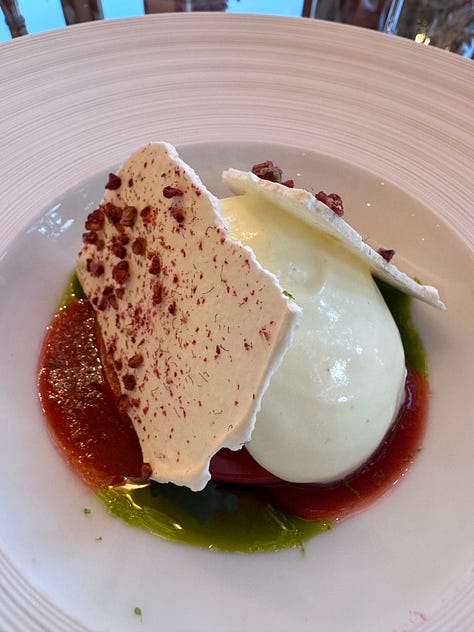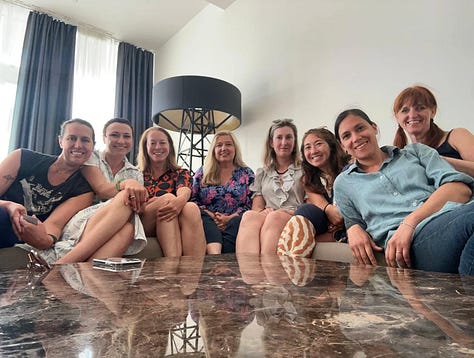Quick housekeeping note to let you know that applications are now open to study writing, craft and the business of selling books WITH ME at the Adriatic Writer’s Conference in Croatia. This is a magical and actually useful writing retreat where you work gets seriously workshopped and then we give you all of the industry advice. Last year’s participants raved about it and I can’t wait to teach at it again.
APPLY NOW: IF YOU ARE ACCEPTED AND GET YOUR DEPOSIT IN BY JANUARY 1, 2026, YOU’LL RECEIVE A $100 DISCOUNT AND A STACK OF AWC AUTHORS’ BOOKS! (USA RESIDENTS ONLY)
Here are some pics from last year’s conference.









I recently did a podcast episode with Kristin Vukovic, the founder of AWC and it has been one of our most downloaded and commented on episodes of all time. It’s about how to get an agent and then how to sell a book. We get into all the nitty gritty, the bullshit and the weird language. I wanted to put some of the takeaways in here and also open up these comments to anyone who has more questions and we will do a part two. Nothing is too small or weird to ask. I am an open book.
You can listen here if you want or just read some takeaways and leave questions in comments.
Publishing can feel like a secret club and the members are often those who already work in media (I did), already have a platform (I do), or already have an MFA that cost as much as a house (I do not because I am not a fancy writer). It’s confusing and weirdly gate-kept and full of jargon like “on sub” and “dev edits,” which sound more like sex acts than things that make a book.
So I wanted to break it down for you.
Step One: Find Your Agent
The first thing you have to do is query. This is such a weird term. “Query” is just the fancy word for asking an agent to read your book.
Fun fact, you don’t send over a whole manuscript of a book. You reach out to agents with a query letter, which is essentially a business email formatted in the very specific way that a particular agent wants it and everyone wants it to be slightly different. They will explain what they want on their websites. It’s not the place to get creative. It’s a place to be clear, concise, and compelling. Tell the agent what your book is about, why you think they’d be interested, and what it’s similar to (in publishing speak, those are your comps).
You’ll need to research agents. The best places to do this are:
Look up agents who represent books like yours. Check their recent deals. See what they’re selling and to whom. Then, personalize your query. Start with something that shows you’ve done your homework: “I loved your client’s novel about Croatian cheesemakers” goes a long way.
And for the love of God, follow directions. Every agency lists specific submission guidelines. Some want 10 pages. Some want 50. Some only want the letter. If they say “send ten pages,” send ten pages. This is not an industry that rewards creativity in rule-following.
Step Two: Survive the Waiting Game
Querying is like releasing helium balloons into the ether. You send them out, and then… nothing. For weeks. Sometimes months. Sometimes forever.
You will get rejections and most of them will be form letters. Occasionally, you’ll get a personalized rejection with feedback. That’s gold. If three agents tell you the same thing—say, “the first ten pages are slow” listen to them. Fix it.
Kristen recommends querying about 15 agents at a time. That way, you can track who’s responding, who’s ghosting, and what feedback you’re getting before you send out the next batch. Think of it like applying to colleges, some are “reach” agents, some are “safety” agents.
If one of those agents bites and asks to see your full manuscript, congrats! Now you’re in what we call the feeding frenzy phase.
Agents are competitive. If one agent wants to read your book, let the others know. Say, “I’ve had a request for a full manuscript.” Suddenly, your project becomes a little more desirable.
Keep reading with a 7-day free trial
Subscribe to Over the Influence to keep reading this post and get 7 days of free access to the full post archives.

